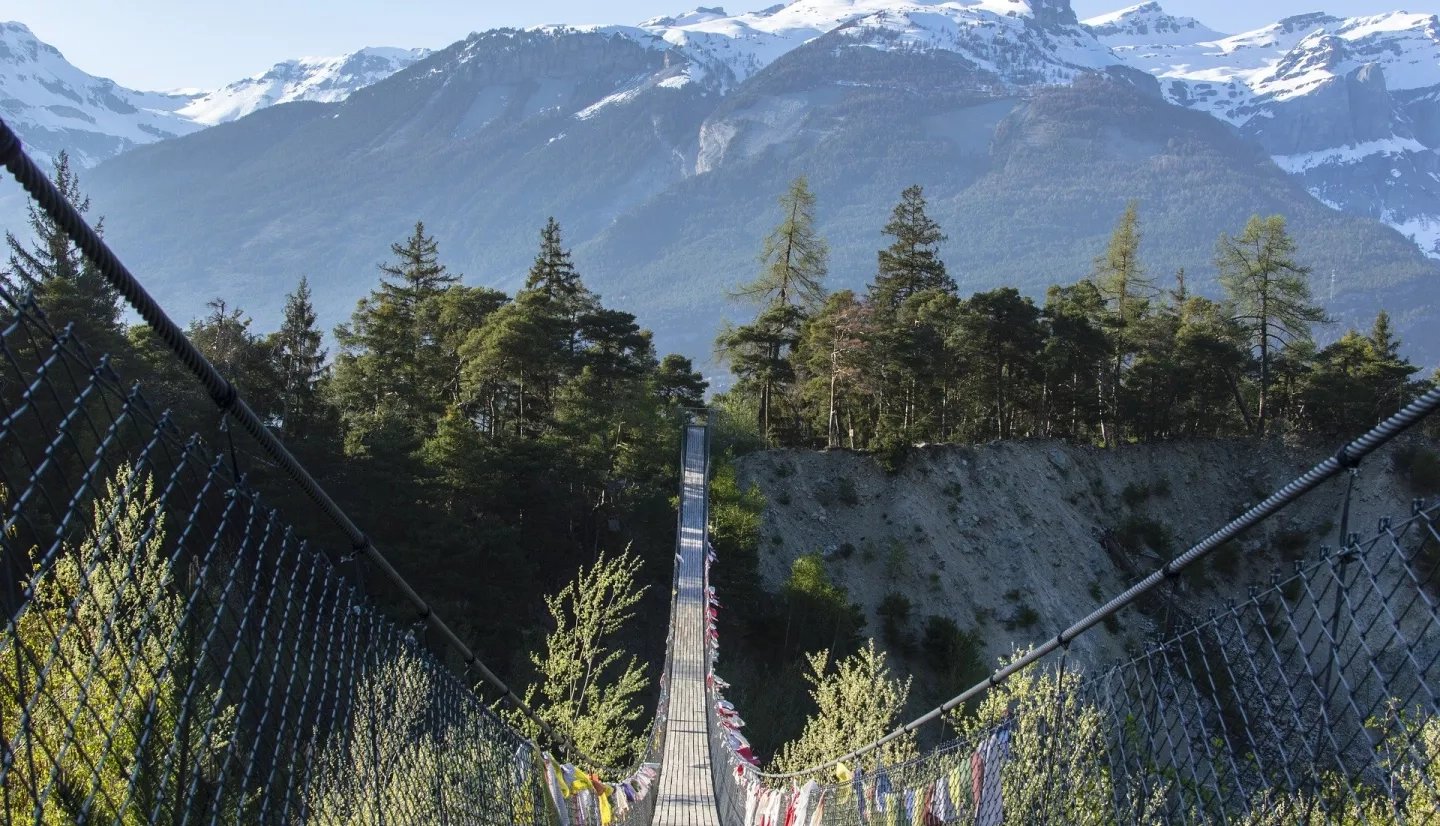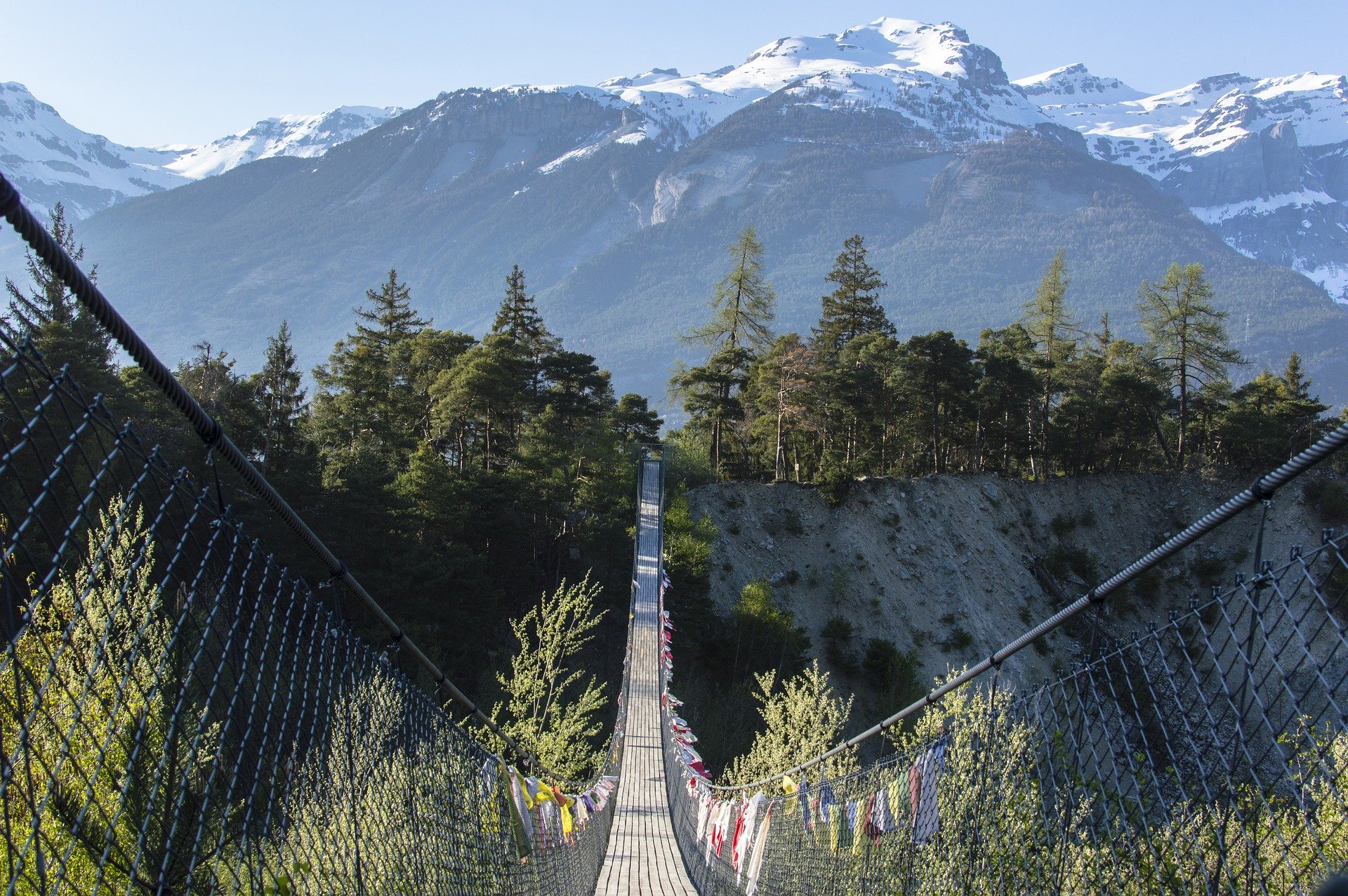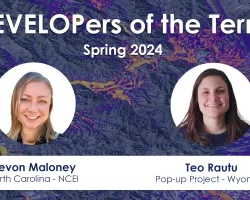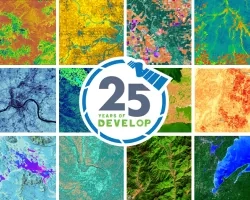The NASA DEVELOP Program has the unique opportunity to work with Bhutanese scholars studying in the United States through a multi-year Interagency Agreement with the U.S. Department of State. The DEVELOP Program is part of a multi-tiered and multi-faceted approach to work with Bhutan in the areas of science, technology, engineering, and math. Through this agreement, DEVELOP will provide technical training through rapid feasibility studies utilizing NASA Earth science data to address environmental concerns in Bhutan. Bhutanese projects will be conducted through 2022.
For summer 2020, the NASA DEVELOP Program partnered with the Bhutan Foundation to conduct two projects. The Bhutan Foundation is a non-profit organization that serves the people of Bhutan through two offices - a U.S. based office in Washington, DC and an office in Thimphu, Bhutan. The organization focuses on conserving Bhutan’s rich natural environment, preserving its unique culture, developing equitable and sustainable progress, and promoting good governance throughout Bhutan.
The Southern Bhutan Ecological Forecasting and Bhutan Water Resources projects were conducted in the summer of 2020. The Southern Bhutan Ecological Forecasting team, from the Maryland – Goddard DEVELOP location, generated habitat suitability maps and land cover classifications along the southern borders of Bhutan. The Bhutan Water Resources team, from the Alabama – Marshall DEVELOP location, assisted the Himalayan Environmental Rhythm Observation and Evaluation System (HEROES) project in assessing climate vulnerability in Bhutan. Learn more about DEVELOP’s summer 2020 projects, including these two, in the summer preview and post.
The NASA DEVELOP Program accepts participants with interdisciplinary skills in many different areas and with varied experience levels. Nine Bhutanese scholars participated on two project teams for the summer 2020 term. Their backgrounds included psychology, civil engineering, global supply chain management, and international business. The participants used their diverse skills to work together, learn from each other, build a technical foundation in remote sensing and GIS, and contribute to their DEVELOP feasibility projects. In addition, the Bhutanese participants strengthened their remote communication skills and learned to use online collaboration tools during DEVELOP’s first virtual term.
The NASA DEVELOP Program interviewed a participant from each of the project teams and the Executive Director of the Bhutan Foundation to learn about their experiences.
Kelzang Jigme
Maryland - Goddard
Southern Bhutan Ecological Forecasting
Why did you apply to the NASA DEVELOP Program?
After completing my high school education from Bhutan, I received an opportunity to pursue further studies at The University of Texas at El Paso. I am currently a junior in my undergraduate program majoring in Mathematics. Initially, I wasn’t aware of the NASA DEVELOP Program and its applications. I wanted to participate in DEVELOP to gain skills and experience in the field of geoinformatics, but now consider myself extremely fortunate to be part of the DEVELOP Program. I learned that such programs signify a greater societal benefit. So far in DEVELOP, I learned many basic GIS skills by participating in various Software Carpentry workshops, but among all these skills, I feel that communication is the ultimate skill I can take from my experience. Being part of this project, I learned that effective communication is essential and DEVELOP is a great platform to enhance communication among teams.
Tell us about the project you worked on.
The Southern Bhutan Ecological Forecasting project focused around Gelephu, located in the southern foothills of Bhutan, which is also my hometown. Working on a project so close to the area where I live, somewhat feels like my destiny. I feel lucky and grateful to have this opportunity to be able to give back something valuable to my community. I had a great personal experience encountering elephants in Gelephu. Most of my life, I heard people from both sides of the border talking about elephants residing in the area, until I got to see the elephants, who still seem mighty in my vivid memories. I still remember one evening, when I was walking home from school, the sound of my footsteps were suddenly accompanied by a rumbling noise which slowly became louder. As I looked around, I saw a herd of elephants crossing the highway at a nearby distance, and then I realized that the rumbling noise was an elephant trumpet. During the elephant encounter, I felt an amazing feeling of wonder and I yearned for another view. As time passed by, I did experience some more encounters with the elephants. Sometimes, I would see them moving in the forested areas of Gelephu, and other times, I would see them in the local fields. Maybe the elephants do not see any borders, unlike humans.
Kinley Dorji
Alabama - Marshall
Bhutan Water Resources
Explain your interest in Earth science.
I’m originally from Thimphu, Bhutan, where I’ve lived almost all my life. Growing up, I recall being concerned about climate variability and our environment and what I could do to reduce my carbon footprint. This is what sparked my interest in Earth science and led me to choose a vegetarian lifestyle for more than a decade now. I will be entering my senior year in my undergraduate program this fall at The University of Texas at El Paso majoring in psychology, with a minor in mathematics.
Why did you apply to the NASA DEVELOP Program?
Initially, I applied for the DEVELOP Program for the same reason I decided to come to the U.S., which was to gain new experiences, become more culturally aware, and connect with like-minded individuals. Through the program, I quickly became aware of how important it is to have proper communication, leadership, and flexibility. I joined the program not knowing what to expect, but I served as the Project Lead for the Bhutan Water Resources team, working daily with satellite data and seeing how our team can contribute to Bhutan’s climate variability. I’ve learned a great deal over the summer term, and I feel confident in my abilities which I can now apply in real life. I’m extremely grateful to have had this opportunity to work with some of the greatest mentors, science advisors, and everyone else at DEVELOP for their endless support, cooperation, and guidance.
Dr. Tshewang Wangchuk
Bhutan Foundation
Executive Director
How does the NASA DEVELOP Program support the Bhutan Foundation’s mission?
Through the NASA DEVELOP Program, we hoped to produce some deliverables … which would provide the tools to lead our discussion with urban planners and conservationists to make Gelephu into an elephant-friendly town; and the second project worked to show how climate data can be used to connect to ground applications such as farming, weather predictions etc. In addition, young Bhutanese scholars were inspired by the learning process that connects them to on-the-ground issues in Bhutan. This group of Bhutanese scholars were the trailblazers - and we are already excited for the team next summer!







